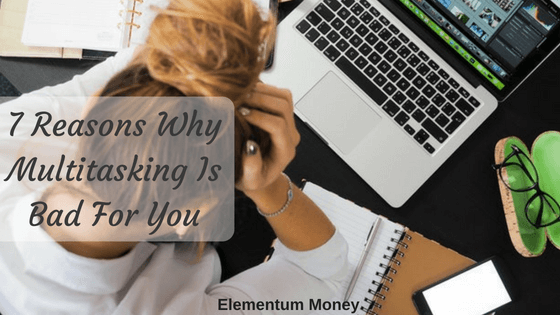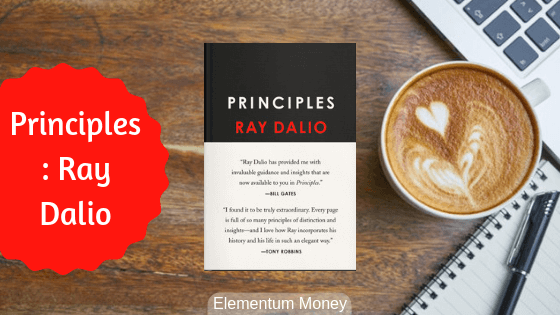
For years, I have been a firm believer of multi-tasking, be it listening to music and studying, watching TV shows while cooking, reading while watching TV or writing an email while talking on the phone. I have always believed that it is all about filling in one minute with 60 seconds of productivity and I was quite proud of my multi-tasking skills. However, off late, the verdict seems to be more along just how multi-tasking is bad for you.
With more of a consciousness of personal development content, I started reading about how experts claim that multitasking is, in fact, harmful to the brain. Internally, I responded “yeah, right” in the instinctive immature manner of someone who believes they know more than experts of what research is putting out. However, gradually, small nagging doubts crept in and I decided to do small experiments and began to mono-task.
Funnily enough, I have actually started seeing a lot of differences. My brain definitely picks up on cues that I consciously feed it. While I was all about multi-tasking at any cost earlier, now multitasking is something that my brain often rejects. No wonder, one of the biggest search threads for multi-tasking is “why multi-tasking is killing your brain”.
Off late, most research points to the fact that humans are not biologically wired to be multi-tasking. In fact, only 2{76b947d7ef5b3424fa3b69da76ad2c33c34408872c6cc7893e56cc055d3cd886} of humans are designed in a way that they can multitask perfectly, and these people are often referred to as supertaskers. Before you think, you are a super-tasker, know that those who think they are very good at multitasking are actually much worse.
Read on to learn 7 reasons why multitasking is bad for you and monotasking might be a better work habit.
1. More taxing to the brain
Research tells us that multitasking is really another word for task switching. So, if we are doing two things simultaneously like reading a book and watching TV, the brain is like a windshield wiper, swiping its focus and attention between the book and the TV. While that makes for some cool imagery, it isn’t really synonymous with efficiency.
Research has concluded that at any point that you switch a task, there is an “attention residue” from the previous task. There is a beat of a moment that it takes to acclimatize to the new task. With the constant switch, instead of efficiency, multi-tasking actually adds to the complexity.
2. Multitasking slows you down
The brain uses different types of skills for different tasks. So, if I write my blog posts while listening to music or cook while watching a TV show, I have noticed a visible increase in the time I take to finish a task.
A better strategy to adopt is to batch tasks. In fact, that’s one of the best practices often advocated by bloggers as well. Once you sit down to it, write multiple posts in one shot or schedule pins for a month. While I am yet to do it successfully for my blog, it has worked really well with the idea of cooking and storing a week’s food every Sunday.
For me, the bigger challenge is just the inertia of starting a task. With batching tasks, you can be in that one mode and get more done quicker.
3. Stress levels increase with multi-tasking
Constant multi-tasking is known to increase stress levels. As pointed out earlier, multi-tasking is really task switching where the brain is switching from one task to the other.
Now, imagine this sprint that your brain actually keeps conducting all the time that you are multi-tasking. Instead of two smooth trains of thought moving simultaneously on well-oiled rail tracks the way you might have imagined, it’s more like a stressful sprint that your brain runs between two points (more if you are doing more tasks at the same time).
Is it any surprise that multi-tasking can lead to mental fatigue and higher stress?
4. Focus span
This is one area that I am consciously working on. In this case, checking Whatsapp or social media or email on your phone counts. Have you ever tried noticing for how long can you really focus on one thing that might need all your attention, without your mind wandering? As per the Pomodoro technique, the recommended span for focused time is 25 minutes. Are you able to devote that to something important?
Apart from the focus span, less focus will show in the quality of the work that you would be on, as well. Personally, I am consciously watching myself and trying for more and more phone-free time. My phone is my biggest instrument of multi-tasking and ignoring that is one of the biggest challenges to going cold turkey on multi-tasking.
5. Memory
Like a computer which has a RAM (Random Access Memory) to perform the requested tasks, our brains also come equipped with a Working Memory. There are times when our computer hangs because of the overload on the RAM. Our Working Memory is no different.
With multitasking, we are stuffing as many as possible variables into our working memory. Over time, multi-tasking is known to have wearing down effects on memory. Try to remember your shopping list or even phone numbers of 10 people on your speed dial. You will get an idea of the health of your memory skills with these exercises.
6. Mindfulness
Mindfulness or the art of being in the present moment is another victim of multi-tasking. With multitasking, since your brain is anyway used to juggling more than one task at a time, even while you are supposed to be doing just one thing, your brain is bound to be constantly buzzing away and thinking or connecting to more things. You will rarely be in the moment.
You might be asking yourself how that is a problem but why mindfulness is really important for focus and sanity per se will need a post of its’ own.
7. Learning
To learn anything new stretches and challenges your brain. If however, it is always burdened by the remnants of attention residue from your other tasks or if it is just not used to mono-tasking at all, learning might become more challenging. You might believe you are learning but the retention of that information or skill is going to be sub-optimal, at best.
So, what can you do about it? For starters, experiment a bit and see if you see any benefits from mono-tasking. Go slow with it, as from personal experience, I can tell you resistance to it comes very easy. However, it’s not necessary to completely give up on multi-tasking.
Multi-task when you are ok with not having the best output in all the tasks that you are performing. For instance, now while cooking I listen to a podcast. It slows me down lesser than watching a TV show and I am ok if I miss some parts of the conversation. When I visit my parents, I read a fiction book while they watch their Hindi TV show. It works very well as they are engrossed in the show, I am into the book but we end up spending time while doing things we like.
However, I have now stopped listening to music while I write or work and I try to keep my phone far from me too at such times. I know times when I absolutely must mono-task and I ensure it remains sacrosanct.
In short, find your comfort zone to know where multi-tasking is ok and where you need your brain to focus completely. The lesser your multi-task, better for your brain.
Do you multi-task? Have you noticed any difference between when you do and when you don’t? Let me know in the comments below.





Leave a Reply